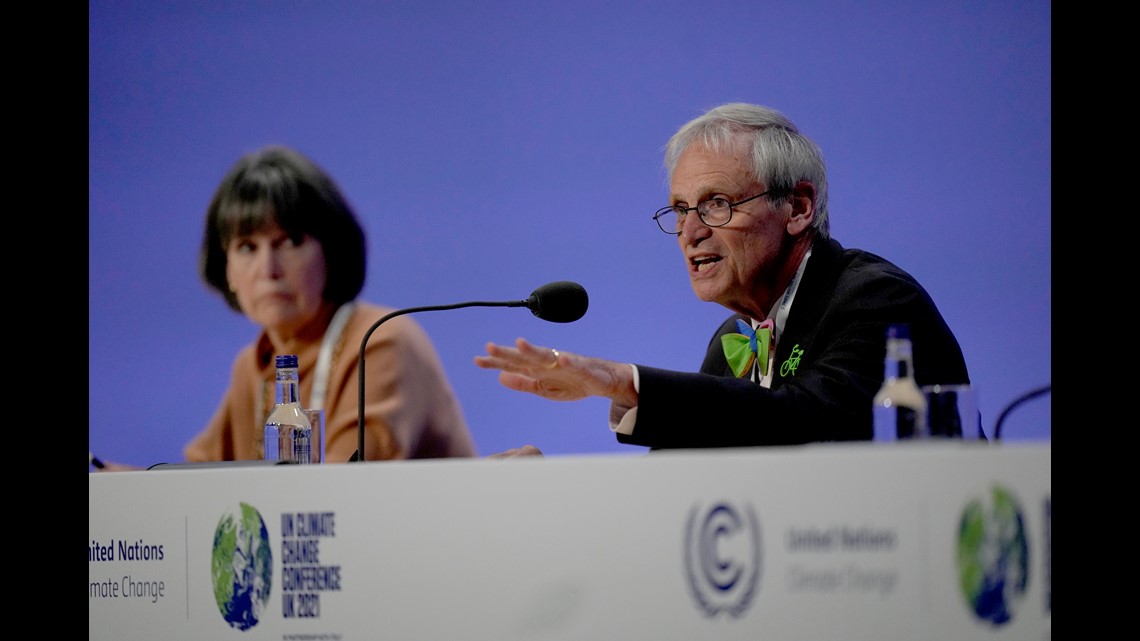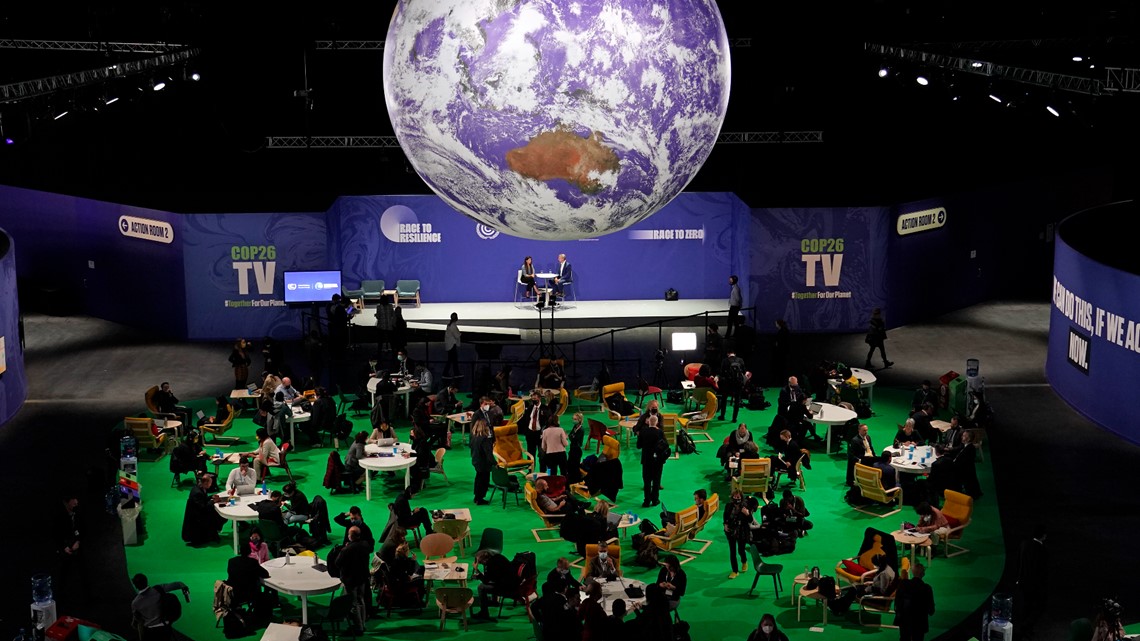PORTLAND, Ore — Nearly 200 nations gathered in Glasgow, Scotland for the COP26 summit billed as one of the last chances to reduce global warming and avoid a climate catastrophe.
U.S. Rep. Earl Blumenauer, D-Oregon, was one of the U.S. House members who attended. He was a guest on this week's episode of KGW's "Straight Talk."
Congressman Blumenauer expressed disappointment negotiators weren't able to secure agreements that would help the planet meet the aspiration of the 2015 Paris agreement of limiting global warming to 1.5°C.
"Make no mistake we have seen too many promises extended — too little performance. And even the most ambitious interpretation of what's there [what was agreed on] means we still have a deficit of what we need to do in carbon reduction," Blumenauer said.


However, he said in spite of the uphill struggle, there's little choice but to try to achieve the goals and pointed to examples around the globe and in Oregon where climate change is already having devastating consequences.
"In Portland, the extreme weather we've seen going up to 116 degrees, the all-time record. We have seen flooding around the world. People drowning in subways and their basements in New York. Whole villages washed away. This is the existential challenges of our times," he said.
RELATED: Portland hits 116 degrees, setting new all-time high record
Blumenauer said the problem is clear and understood around the globe and there are specific things that can make a difference.
"It's a matter of will and it's a matter of follow-through. I am optimistic if we make progress in the next decade that we won't have to be doomed in the next century," he said.
Fighting global warming by stopping illegal deforestation
Blumenauer is the chair of the House Ways and Means Trade Subcommittee and is in a unique position to try to fight climate change through trade legislation. He and U.S. Senator Brian Schatz (D-Hawaii) introduced legislation aimed at preventing illegal harvesting of trees around the globe particularly in the vast areas of the Amazon basin.
"The Amazon basin, these [trees] are the world's lungs. These vast forest reaches absorb a great deal of carbon and when they are burned or cut down, they release it [carbon]," he said.
The bipartisan "Fostering Overseas Rule of Law and Environmentally Sound Trade (FOREST) Act" creates a framework for the federal government to prohibit products such as beef, soy, palm oil, and wood grown on illegally harvested land to enter international markets and unfairly compete with products produced legally.
"[The legislation] would mean a financial disadvantage to impede, slow, perhaps reverse deforestation and is an important step forward," Blumenauer said.


"From Ruin To Resilience"
Days after returning from COP26 in Scotland, Blumenauer released a report and legislative agenda titled, "From Ruin To Resilience." It called on the U.S. government to invest more in community preparedness, resilience and risk mitigation. Blumenauer said when it comes to infrastructure, the biggest program right now is the money the federal government spends on recovering from and fighting disasters.
RELATED: Two projects in NE Portland will impact drivers and MAX riders this weekend
"I want to target that money to solve the problems going forward. Use it to deal with the equity issues we have. Black, Brown, poor people who pay the price. Being able to use some of that disaster relief to put them in a better condition going forward," he said.
Congressman Blumenauer also discussed the Biden administration's Build Back Better infrastructure bill, Republican claims that the multi-trillion dollar proposals are leading to inflation and responded to local youth activists' call to stop expanding freeways.
Straight Talk airs Friday at 7 p.m., Saturday at 6:30pm and Sunday at 9:30pm.

